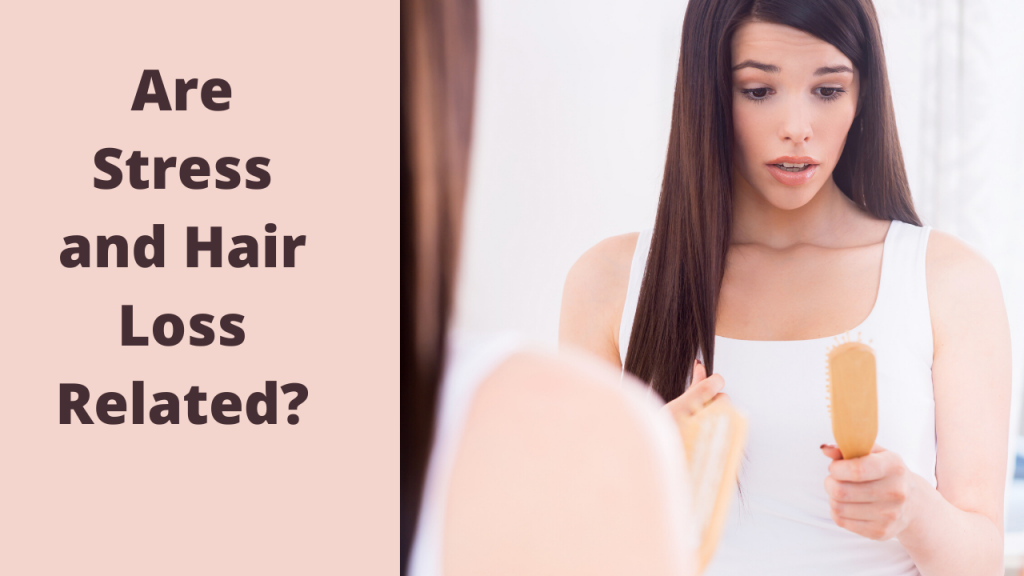Hair loss is an extremely touchy and stressful subject for most people. It can be caused by many different factors and determining the exact cause early on is crucial. In this article, I’m going to talk about a very specific type of hair loss – one that’s caused by extreme stress.
Why Does Stress Cause Hair Loss?
There are many types of stress and, at least in most cases, we don’t know exactly why or how it leads to hair loss. Some studies suggest that since hair growth is not considered to be a critical function by the body, it can sometimes stop new hair growth during periods of extreme mental or physical exhaustion. Here are the two most common stress-related conditions that cause hair thinning:
- Telogen effluvium: This condition occurs when a very stressful experience in your life causes a large number of hair follicles to enter the resting stage (also known as the telogen stage). Once the resting stage is over, hair sheds and new growth begins.
- Trichotillomania: A very fancy word to describe a very simple condition – constant pulling of hair from scalp and other areas of the body. We all do this from time to time. In people under extreme stress, however, this condition can get out of control and cause serious damage.
The good news is that most of the time stress-related hair loss is temporary and can be cured by successfully reducing stress and anxiety. Oh and another interesting fact: stress has not been shown to cause gray hair and premature aging of hair. Most people believe that stress does cause gray hair to appear, but it’s mostly just speculation without any real scientific proof (yet).
How to Cure Stress Related Hair Loss
The very first thing to do when you notice hair loss, thinning or uneven hair growth is to get an accurate diagnosis. I’ve written a little about this in my other hair loss article, but remember that only a medical professional can help you in this regard!
Note: most experts believe that only extremely stressful events can lead to hair loss. Just because you are under a lot of stress at work or have to deal with irritating colleagues, you should not experience any problems with hair loss. Only events that quite literally shake you up and keep you up at night for days can lead to such a strong reaction. Things like a serious accident, extremely intensive workouts, catastrophic debt (foreclosure, bankruptcy and so on), sudden illness, loss of a friend/loved one, and so on.
Once you know that your hair loss has been caused by stress you can begin treatment. Now, treating stress induced hair loss is tricky, since you have to address the main cause of stress instead of treating the symptoms (hair loss). This counterintuitive approach can be difficult to follow, which often leads to people using various hair loss medications that do not have any long-term effect and simply cannot treat their hair loss problems.
Here are some tips to get you started:
Talk to your doctor and try to rule out all other causes of hair loss. Think over the last 3-5 months of your life and consider any stressful experiences that may have triggered hair loss. Remember that stress induced hair loss is usually delayed by about 2-3 months (that’s how long your hair stays in the “resting” stage).
If you suffer from ongoing issues with stress, it is time to start making some serious lifestyle changes. See a professional counselor at least a few times to help you build a focused, individual “plan of attack”. Once your stress is under control, normal hair growth will resume and things will slowly go back to normal.
Once your stress issues have been dealt with (or if you experienced very severe, short-term stress) you can ensure that your hair grows at the fastest possible rate by taking natural vitamins, using essential oils and following these hair care tips to maximize hair retention.
Good luck!



Comments are closed.